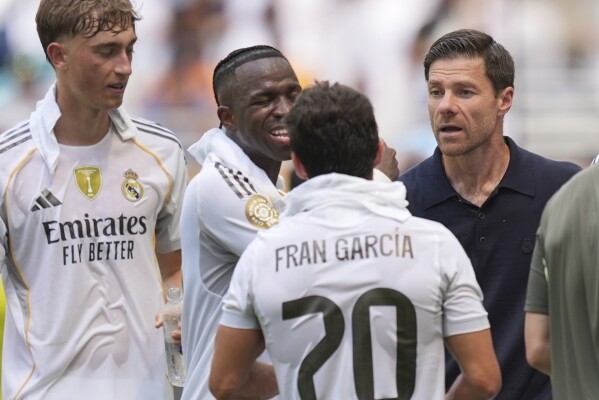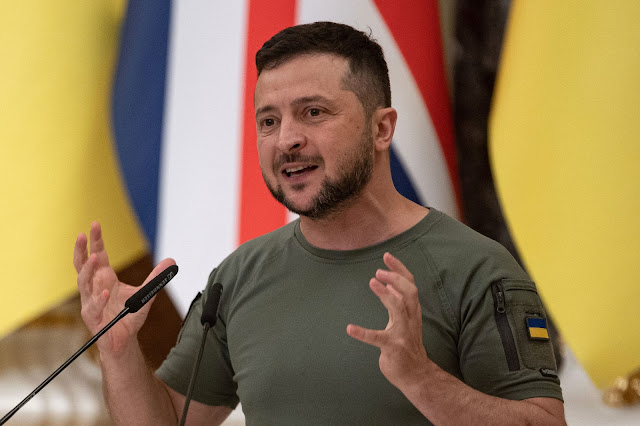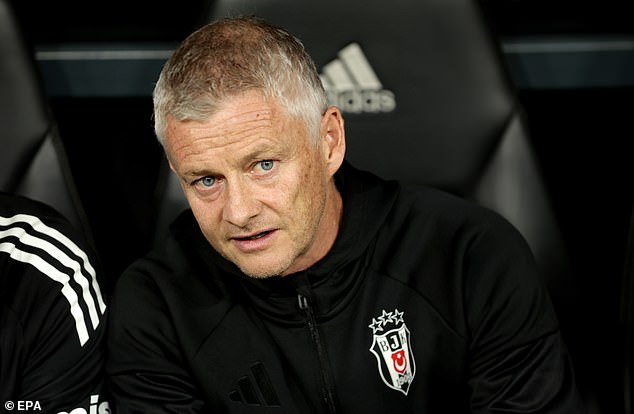On August 29, 2025, former Germany international and Real Madrid legend Toni Kroos delivered a candid warning to the club’s new manager, Xabi Alonso, emphasizing that his illustrious playing career will offer no shield if he fails to deliver trophies in the coming years. Speaking to the club’s official website, Kroos, now over a year into his retirement, underscored the unrelenting expectations at Real Madrid, where success is measured in silverware. The comments come as Alonso, who succeeded Carlo Ancelotti as head coach this summer following a trophyless 2024/25 season, faces the daunting task of restoring the club to its position as Europe’s preeminent footballing powerhouse. Kroos also offered praise for Real Madrid’s new defensive signing, Dean Huijsen, describing him as a “very complete central defender” on his Einfach mal Luppen podcast. This article delves into Kroos’s remarks, the challenges facing Alonso, the context of Real Madrid’s recent struggles, and the broader implications for the club’s future under its new manager.
Kroos’s Warning: A Legacy Won’t Suffice
Toni Kroos, who retired in the summer of 2024 after a glittering career that included six UEFA Champions League titles and four La Liga crowns with Real Madrid, is no stranger to the pressures of managing one of the world’s most storied clubs. His comments to the club’s website reflect the unforgiving standards that define life at the Santiago Bernabéu. “Surely he will know how to correct what needs to be adjusted. There are things that must change, but things have to go well with such quality,” Kroos said of Alonso. “His playing record helps, but it doesn’t protect him if he doesn’t win titles three years in a row. I think the season will be better.”
Kroos’s words carry significant weight, given his status as one of Real Madrid’s all-time greats. The German midfielder, known for his metronomic passing and ice-cool composure, was a linchpin in the club’s dominance during his decade-long tenure from 2014 to 2024. His warning to Alonso underscores the reality that at Real Madrid, past achievements as a player—however illustrious—count for little if the trophy cabinet remains empty. Alonso, a former Real Madrid midfielder who won the Champions League with the club in 2014, is acutely aware of these expectations, having stepped into the role after a trophyless season under Ancelotti, a manager who had previously delivered five Champions League titles to the club.
The phrase “three years in a row” is particularly striking, as it sets a clear benchmark for Alonso’s tenure. Real Madrid’s history is littered with examples of managers who faced intense scrutiny—or even dismissal—after failing to deliver consistent success. Even Ancelotti, one of the most successful managers in the club’s history, was sacked in 2015 after a single season without major silverware, only to return in 2021 and reclaim his status as a club legend. For Alonso, the message is clear: the honeymoon period will be short, and results will define his legacy.
The Context: A Trophyless Season and Alonso’s Appointment
Real Madrid’s 2024/25 season was a rare anomaly for a club accustomed to dominating both domestically and in Europe. Under Carlo Ancelotti, the team finished second in La Liga, behind rivals Barcelona, and were knocked out of the UEFA Champions League in the quarter-finals. The Copa del Rey and Spanish Super Cup also eluded them, marking the first time since the 2014/15 season that Los Blancos ended a campaign without a major trophy. The disappointment led to Ancelotti’s departure, despite his storied history with the club, paving the way for Xabi Alonso to take the reins.
Alonso’s appointment in the summer of 2025 was met with widespread excitement. The 43-year-old Spaniard, who enjoyed a distinguished playing career at Liverpool, Real Madrid, and Bayern Munich, had established himself as one of Europe’s most promising young managers during his tenure at Bayer Leverkusen. In the 2022/23 season, Alonso led Leverkusen to the Bundesliga title, ending Bayern Munich’s decade-long dominance, and reached the UEFA Europa League final. His tactical acumen, rooted in a possession-based, high-pressing style, earned him plaudits and made him a natural fit for Real Madrid, a club he served with distinction as a player from 2009 to 2014.
However, the transition from Leverkusen to Real Madrid represents a significant step up. At Leverkusen, Alonso operated in a relatively low-pressure environment, with the freedom to implement his ideas over time. At Real Madrid, the expectations are immediate and unrelenting. The club’s president, Florentino Pérez, is known for his demand for instant success, and Alonso’s appointment reflects a bold gamble on a relatively untested manager at the elite level. Kroos’s comments serve as a reminder of the high stakes involved, as Alonso must navigate a squad of superstars, intense media scrutiny, and the weight of Real Madrid’s storied history.
Challenges Facing Alonso
Alonso inherits a squad brimming with talent but also facing significant challenges. Real Madrid’s roster includes world-class players like Vinícius Júnior, Jude Bellingham, and Kylian Mbappé, who joined the club in the summer of 2024 but struggled to replicate his Paris Saint-Germain form in his first season. The departure of key veterans like Luka Modrić and Dani Carvajal, combined with Ancelotti’s exit, has left the squad in a transitional phase. While the quality of the team is undeniable, as Kroos noted, Alonso must address tactical and cultural issues to restore Real Madrid’s dominance.
One of Alonso’s primary tasks is to “correct what needs to be adjusted,” as Kroos put it. The 2024/25 season exposed vulnerabilities in Real Madrid’s squad, particularly in defense, where injuries and inconsistent performances plagued the backline. The midfield, once anchored by Kroos and Modrić, lacked cohesion at times, with younger players like Eduardo Camavinga and Aurélien Tchouaméni struggling to fill the void. Up front, Mbappé’s integration into the team was a point of contention, as his individual brilliance often clashed with Ancelotti’s more pragmatic system.
Alonso’s tactical philosophy, which emphasizes high pressing, quick transitions, and positional play, is expected to bring a fresh dynamic to Real Madrid. His success at Leverkusen, where he transformed a mid-table side into Bundesliga champions, suggests he has the vision to revitalize Los Blancos. However, implementing his ideas in a squad accustomed to Ancelotti’s more flexible, counter-attacking style will require time and patience—commodities that are in short supply at Real Madrid. Kroos’s assertion that “things have to go well with such quality” reflects the expectation that, with players of the caliber of Bellingham and Vinícius, there is no excuse for failure.
The Pressure of Real Madrid’s Trophy Culture
Real Madrid’s identity is inseparable from its trophy-laden history. The club has won 15 UEFA Champions League titles, more than any other team, and 36 La Liga titles, alongside numerous domestic and international honors. This legacy creates a culture where anything less than silverware is considered a failure. Kroos, who played a pivotal role in four of those Champions League triumphs, understands this better than most. His warning that Alonso’s playing record “doesn’t protect him if he doesn’t win titles three years in a row” is a stark reminder of the club’s ruthless standards.
The “three years in a row” caveat is particularly significant in the context of Real Madrid’s recent history. Managers like Zinedine Zidane and Ancelotti have been judged not just on their ability to win trophies but on their consistency in doing so. Zidane’s remarkable run from 2016 to 2018, which included three consecutive Champions League titles, set an almost unattainable benchmark. Even Ancelotti, who delivered the club’s 14th and 15th Champions League crowns in 2022 and 2024, faced scrutiny after a single trophyless season. For Alonso, the pressure to deliver immediately is compounded by the fact that he is following in the footsteps of such managerial giants.
Florentino Pérez, Real Madrid’s president since 2000 (with a brief hiatus from 2006 to 2009), is known for his uncompromising approach to success. Pérez’s vision for the club has always been to combine sporting excellence with global commercial dominance, and managers are expected to deliver results that align with this ambition. Alonso’s playing record, which includes a Champions League title with Real Madrid and a World Cup with Spain, gives him credibility with fans and players, but Kroos’s comments suggest that this will only buy him so much time. Pérez’s history of dismissing managers like Rafa Benítez, Julen Lopetegui, and Santiago Solari after short stints underscores the precarious nature of Alonso’s position.
Dean Huijsen: A Bright Spot in Defense
Amid the high expectations and pressure, Kroos also took the opportunity to highlight a positive development for Real Madrid: the signing of young Dutch defender Dean Huijsen. Speaking on his Einfach mal Luppen podcast, Kroos described Huijsen as “a very complete central defender, strong in his aerial game, fast and with good ball delivery.” The 20-year-old, who joined Real Madrid from Juventus in the summer of 2025, is seen as a long-term solution to the club’s defensive issues, particularly following the departure of veterans like David Alaba and Carvajal.
Huijsen, who came through PSV Eindhoven’s academy before moving to Juventus, has already earned comparisons to top European defenders due to his physicality, technical ability, and versatility. At 6’5”, he dominates in the air, making him a valuable asset in both defensive and attacking set-pieces. His speed and composure on the ball align with Alonso’s possession-based philosophy, which requires defenders to contribute to build-up play. Kroos’s endorsement of Huijsen reflects the excitement surrounding the young defender, who could form a formidable partnership with Éder Militão in the heart of Real Madrid’s defense.
The signing of Huijsen is part of Alonso’s broader strategy to blend youth and experience in his squad. With players like Bellingham, Camavinga, and Vinícius already established as world-class talents, the addition of a promising defender like Huijsen signals Real Madrid’s intent to build a team capable of dominating for years to come. However, integrating a young player into a high-pressure environment like Real Madrid will be a test of Alonso’s man-management skills, particularly given the club’s history of expecting instant contributions from new signings.
The Broader Context: Real Madrid’s Place in European Football
Real Madrid’s trophyless 2024/25 season was a rare blip in an otherwise dominant era. The club’s success in the early 2020s, including Champions League titles in 2022 and 2024, reaffirmed their status as Europe’s premier club. However, the rise of rivals like Manchester City, who have dominated the Premier League, and Barcelona, who reclaimed the La Liga title in 2024/25, has intensified the competition. Alonso’s appointment is seen as a strategic move to counter these challenges, bringing a modern, progressive approach to a club that has often relied on its aura and individual brilliance.
The 2025/26 season is a critical juncture for Real Madrid. With Kylian Mbappé now in his second season at the club, expectations are high for the French superstar to deliver the goals and performances that justified his high-profile signing. Bellingham, who won the Ballon d’Or in 2024, remains the heartbeat of the team, while young talents like Arda Güler and Endrick offer depth and potential. Alonso’s ability to harness this talent, while addressing the tactical and cultural issues exposed last season, will determine whether Real Madrid can reclaim their place at the pinnacle of European football.
Kroos’s optimism that “the season will be better” reflects a belief in Alonso’s ability to turn things around. The German midfielder’s deep connection to the club, having played 463 matches and won 22 trophies, gives his perspective credibility. However, his warning about the need for titles underscores the reality that optimism alone will not suffice. Alonso must deliver tangible results, starting with a strong performance in La Liga and a deep run in the Champions League.
Alonso’s Tactical Vision and Challenges
Xabi Alonso’s managerial philosophy, honed at Leverkusen, is rooted in a 3-4-2-1 or 4-2-3-1 formation, emphasizing high pressing, quick transitions, and positional discipline. At Leverkusen, he transformed players like Florian Wirtz and Jeremie Frimpong into world-class talents, showcasing his ability to maximize individual potential within a cohesive system. At Real Madrid, he faces a different challenge: managing a squad of established stars with egos and expectations to match.
One of Alonso’s immediate priorities will be to integrate Mbappé effectively into the team. The Frenchman’s first season was marred by tactical mismatches, as Ancelotti struggled to balance his attacking instincts with Vinícius Júnior’s role on the left. Alonso’s system, which often relies on two attacking midfielders behind a lone striker, could provide Mbappé with the freedom to thrive, while allowing Bellingham to operate in a more advanced role. However, finding the right balance in midfield, where Tchouaméni and Camavinga must provide defensive stability, will be crucial.
Defensively, Alonso must address the inconsistencies that plagued Real Madrid last season. The signing of Huijsen, combined with the return of Militão from injury, offers hope, but the departure of experienced players like Alaba and Carvajal has left gaps in leadership. Alonso’s ability to instill a sense of unity and purpose in the squad, much like Zidane did during his tenure, will be critical to overcoming these challenges.
The Role of Florentino Pérez
Florentino Pérez’s influence looms large over Alonso’s tenure. The Real Madrid president, known for his ambitious vision and willingness to make bold decisions, has a history of backing managers with significant resources while demanding immediate results. Pérez’s decision to appoint Alonso, a relatively inexperienced manager compared to predecessors like Zidane and Ancelotti, reflects his belief in the Spaniard’s potential to lead the club into a new era. However, Pérez’s patience is notoriously limited, and Alonso will need to deliver early successes to secure his long-term future.
Pérez’s focus on the Galácticos model—signing high-profile players like Mbappé and Bellingham—has kept Real Madrid at the forefront of global football. However, the trophyless 2024/25 season raised questions about the sustainability of this approach, particularly in an era where tactical cohesion and youth development are increasingly important. Alonso’s appointment signals a shift toward a more modern, systematic approach, but he must balance this with the club’s tradition of star-driven success.
Kroos’s Legacy and Perspective
Toni Kroos’s comments reflect his deep understanding of Real Madrid’s culture, gained through a decade of unparalleled success. As one of the architects of the club’s golden era, Kroos played alongside legends like Cristiano Ronaldo, Sergio Ramos, and Luka Modrić, contributing to four Champions League titles in five years (2014–2018) and a fifth in 2022. His ability to control games with precise passing and tactical intelligence made him a fan favorite and a cornerstone of the team.
Since retiring, Kroos has transitioned into a media role, co-hosting the Einfach mal Luppen podcast with his brother Felix. His comments on Huijsen demonstrate his continued engagement with the club, offering insights into the next generation of talent. Kroos’s endorsement of the young defender is significant, as it reflects his belief in Real Madrid’s ability to rebuild their defense around emerging stars. His warning to Alonso, however, is a reminder of the fine line between success and failure at the Bernabéu.
The Road Ahead for Alonso and Real Madrid
As the 2025/26 season unfolds, Xabi Alonso faces a defining moment in his managerial career. The early months of his tenure will be crucial, with key fixtures in La Liga, the Champions League, and the Copa del Rey testing his ability to implement his vision. The visit of Barcelona for El Clásico, likely in October or November, will be a litmus test, as will Real Madrid’s Champions League campaign, where they are expected to challenge for the title.
Alonso’s success will depend on his ability to unite a talented but transitional squad, integrate new signings like Huijsen, and deliver results under intense scrutiny. Kroos’s prediction that “the season will be better” is a vote of confidence, but the caveat about titles underscores the reality that optimism must be backed by silverware. For Real Madrid fans, who have grown accustomed to success, anything less than a trophy will be a disappointment.
Conclusion
Toni Kroos’s warning to Xabi Alonso serves as a stark reminder of the expectations that come with managing Real Madrid. The club’s trophyless 2024/25 season has heightened the pressure on Alonso to deliver immediate success, and Kroos’s comments reflect the unforgiving nature of life at the Bernabéu. While Alonso’s playing record and managerial pedigree give him a strong foundation, the demand for titles—potentially three years in a row—sets a formidable challenge.
The signing of Dean Huijsen, praised by Kroos as a “complete” defender, offers hope for a brighter future, but Alonso must navigate a complex landscape of tactical, cultural, and institutional challenges. With Florentino Pérez’s watchful eye, a squad of world-class talent, and a fanbase hungry for glory, Alonso’s tenure will be defined by his ability to restore Real Madrid to their rightful place at the top of European football. As the 2025/26 season unfolds, the football world will be watching to see if Alonso can rise to the occasion and etch his name into the club’s storied history.






